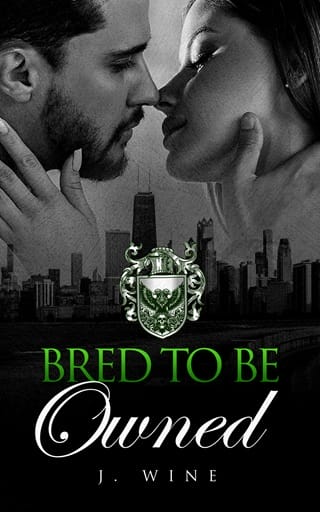Chapter 7
‘I want to be closer,’ Pierre said.
‘Why?’ asked Jacques, taking a bite of his apple, spraying juice and spittle. ‘You shall see the witch burn just as well from here.’
Pierre had attended burnings in the past – two in his hometown of Nancy in Lorraine, and one he was fortunate to chance upon while visiting an aging relative in Provence – but never had he felt the desire to be close enough to feel the heat from the flames. But he had to see her again. The way she had made him feel, what she had done to his body ... He wanted to feel it again. Even if he had to share in it with the unwashed rabble surrounding him.
Cologne’s market square heaved with the bodies of men, women and even children, all clamouring for the best position to witness the spectacle. Some enterprising market vendors were pushing handcarts and selling souvenirs – scraps of cloth claiming to have been torn from the witch’s dress – as well as flowers to hold in front of delicate noses once the flames were lit. The air tingled with collective anticipation. It reminded Pierre of a fête. No, it was much better than a fête; it was the righteous hand of God, delivering justice through his emissaries on earth.
Pierre had not been able to sleep the night before, nor any night since he had seen the witch. With her many persuasions, she entices him; with her flattering lips, she seduces him. The proverb had been running through his mind for days, the words taking on a new meaning.
Michel Palomer, who had so boldly invited him to see the witch on that memorable evening, barely a week since, had not come to the execution, but his companion Jacques Fontaine was made of sterner stuff.
‘Is your father here?’ Pierre asked. Jacques had proved to be useful after all, introducing Pierre to his father, Monsieur Jacques Fontaine the elder, a fellow man of law who shared Pierre’s interest in witches. Monsieur Fontaine had seen potential in Pierre as a witch hunter, but he was not in a position to offer him work at this time. He had bid Pierre to write to him, though, to be kept apprised of any opportunities. Apparently Monsieur Fontaine’s business interests extended beyond Cologne and into the French territories; there were witches to be found everywhere, it seemed.
‘Perhaps,’ Jacques replied. ‘I have not seen him in days. He’s a busy man.’
Pierre relied on that. A busy man would need others to assist him with his work.
The crowd began to roar. The moment had come. Leaving Jacques’ side, Pierre forced his way through, trying to get as close as possible to the stake. The crush of people did not part willingly, and when he reached a point where he could no longer move, there were still several bodies between him and his prize.
She had almost arrived; the cart had rolled to a stop at the edge of the throng. He caught a glimpse of the witch as she was hauled into the light. She was not as he remembered, and not just because she was now fully clothed. Her head had been shaved. Poorly done, for blood wept from the open sores on her scalp. Two gendarmes held her upright as her useless legs dragged along the ground. True, she had been damaged when he saw her in that house. But here she was weak, broken, humbled before a crowd of onlookers. To see her reduced to such a state, he felt himself grow hard, straining at the fabric of his breeches.
Everyone fell silent as the magistrate read the charges and confirmed the sentence of death. The witch had a name – Eva. But to Pierre, she was his witch.
‘Eva Weber of St Maximin,’ the magistrate intoned. ‘You have been accused of using witchcraft to murder the son of Jakob Weber of St Maximin. The babe was scarcely two months of age. On the day of the murder, Herr Weber witnessed you feeding his son blood from your breast instead of milk. That night you pressed your lips to his son’s and in the morning the infant was dead. Under interrogation you confessed to making a pact with the Devil, sealed with the blood and breath of an infant born from your own body. For the crime of witchcraft and murder, this court condemns you, Eva of St Maximin, to be burned alive.’
The black-hooded executioner carried two lengths of rope. With one he bound her tightly to the stake and the other he stretched around her neck. Pierre held his breath. He did not pray, speak, nor think – only waited for the moment when the witch breathed her last and her soul left her body.
When the executioner finally dropped the rope, Pierre took a big gulp of air and felt it flood his empty lungs. He had not expected the strangulation to take so long. But justice had not yet been served. The straw caught the flames, which quickly reached the witch’s knees. Pierre watched her face for any sign that she still lived. Sometimes the executioner would err, leaving the body unconscious yet alive. Could she feel it? Could she feel her flesh burning, her bones turning black? But no, not a single flicker of life remained in that small, broken body.
Someone jostled against him, and he turned to find Jacques, his eyes wide and fixed on the pyre.
‘Do you smell that?’ asked Jacques.
Meat was meat, Pierre had heard. With the witch’s soul gone, all he could see was meat, flame, smoke and wood.
‘It makes me hungry,’ Jacques said.
Pierre hungered for something else. Having faced the witch and lived, having felt the effects of her unnaturalness on his own body, and having then been witness to justice, most swift and divine, he had never been more certain of anything else in his life. This was his true calling.
He could not wait to tell his father.
On the advice of Monsieur Fontaine the elder, Pierre left Cologne and travelled to Strasbourg to pursue rumours of witchcraft, but upon arriving in the town was disappointed to find they had been grossly exaggerated. The accuser had laid a claim of witchcraft against her neighbour, a woman of similar age but enhanced circumstances. Once the motive of jealousy was established, the accuser herself was sentenced to one week in the pillory for making a false claim.
It was while sitting in a local tavern, once again, that Pierre’s fortunes changed. He drank alone, one hand clasped around a tankard and the other drumming anxiously on the table, a plate of boiled mutton and potatoes untouched before him. Snippets of conversation floated by as insubstantially as smoke, until a word caught his ear.
‘Why do you have to go inventing a werewolf, Serge?’ said a man with a rough country burr.
‘I’m inventing nothing, just passing on what I heard.’ It must have been Serge who replied.
‘It was probably a regular wolf, is all I’m saying.’
‘And were you there?’
‘You weren’t there either.’
‘Did you want to hear what I heard or not?’
A deep sigh from the first speaker. ‘Tell me anyway.’
‘A girl was killed, torn limb from limb, she was, by a monster,’ Serge said, lowering his voice. ‘Young girl, but old enough to be out on her own herding sheep, a quarter of a league from Dole, in the Franche-Comté region. No one heard her scream, or so they say. The beast must’ve come upon her quickly. By the time they found her, her own maman could only recognise her by her shoes and the yellow of her hair. I hope to God that child was dead when it started eating her. No man could have done this, they said, and I believe them.’ He took a deep draught of ale.
The other man protested, ‘Wolves are everywhere, even more than before the war started. Could easily have been a wolf. Maybe a mangy, diseased one?’
‘You mark my words, this monster will kill again. It’s happened before, and it’s happening again, just like Poligny,’ Serge said.
‘It’s not the same. In Poligny there were three werewolves!’
‘There could be three in Dole.’
‘And a woman too.’
‘She wasn’t a werewolf.’
Pierre wanted to tell them that witches could be either women or men. He had read so, in the seminal work the Malleus Maleficarum . Women were more likely to participate in witchcraft because of the qualities inherent to their sex – loose tongues, physical and spiritual weakness, and above all, inferior minds.
Werewolves, though – that was interesting. There had been few reported werewolf trials. Compared to the scourge of witchcraft, which caused thousands of deaths, werewolves were a minor annoyance – responsible for only a few confirmed deaths across France and the Holy Roman Empire. Although could this be the beginning of a new scourge? Could this be his opportunity to stamp out werewolves before they had a chance to take root? If he did, he would be famous! Everyone would know the name of the great Pierre de Lancre. His father would finally see him for the man he knew himself to be. He knew where he needed to go, where he had to be, where his destiny would lie.
Dole.
 Fullepub
Fullepub 



